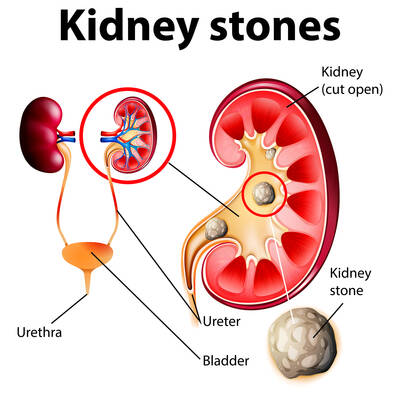We’ve all been there: you start scrolling on TikTok during a quick study break, and suddenly, an hour vanishes. Welcome to the “TikTok Brain” phenomenon. Although it’s not an official medical term, this expression is used to explain how TikTok captures our attention and influences behavior, particularly among young people.
At the core of TikTok’s addictiveness is its algorithm, which measures users’ preferences and the time spent on individual posts. It aims to recommend further content that matches users’ interests and keeps them engaged for as long as possible. Some psychologists suggest that TikTok functions as a dopamine machine. Dopamine, a neurotransmitter released when our brain is anticipating rewards, creates pleasure and encourages us to seek more. Because of TikTok’s mechanism, users experience a consistent release of dopamine as they scroll for the next interesting video, potentially leading to addictive behavior.
Accompanying this usage pattern are downsides like weakened short-term memory and focus. Research suggests that excessive TikTok use can disrupt your ability to concentrate on tasks requiring extended attention. The platform conditions your brain to favor bite-sized visual content, making it challenging to focus on longer text-based tasks like homework or reading. This is particularly harmful for children and teens, whose brains are still developing the ability to sustain prolonged focus.

Photo: Freepik / 照片:Freepik by drobotdean
Aside from TikTok, platforms like YouTube and Instagram are also adopting the addictive features of short video applications to attract young viewers. To address this issue, some social media companies are initiating measures to help younger users manage their time more effectively. TikTok, for example, sends reminders to users to take a break, stretch or go for a walk. While social media can be entertaining, don’t let it dominate your brain. Stay aware, establish boundaries, and you can strike a balance between digital enjoyment and real-world responsibilities.
我們都曾經歷過這種情況:你在短暫的休息時間開始滑 TikTok,突然之間,一個小時就逝去了。歡迎來到「TikTok 腦」現象。儘管這不是一個正式的醫學術語,但這個詞語被用來解釋 TikTok 如何吸引我們的注意並影響行為,特別是對年輕人。
TikTok成癮的核心在於其演算法,該算法評估用戶的偏好和在單一貼文上花費的時間。它的目標是推薦更多符合用戶興趣的內容,並讓他們盡可能長時間地參與其中。一些心理學家認為TikTok的功能就像是一台多巴胺機器。多巴胺是一種當我們的大腦預期獲得獎賞時釋放的神經傳遞物質,它帶來愉悅感並鼓勵我們追求更多。由於 TikTok 的機制,用戶邊滑手機邊尋找下一個有趣的影片時會持續釋放多巴胺,這可能導致上癮行為。
伴隨這種使用模式而來的是一些不利之處,如削弱的短期記憶和注意力。研究表明,過度使用TikTok可能會干擾你專注於需要長時間注意力的任務的能力。這個平台制約你的大腦更偏好簡短的視覺內容,這使得你難以專注於較長的以文本為基礎的任務,如做作業或閱讀。對於那些大腦仍在發展維持長時間專注能力的兒童和青少年來說,這尤其有害。
除了TikTok之外,像YouTube和Instagram這樣的平台也正在採用短影片應用程式的上癮特性,以吸引年輕觀眾。為應對這個問題,一些社交媒體公司正開始採取措施來幫助年輕用戶更有效地管理他們的時間。例如,TikTok會提醒用戶休息一下、伸伸懶腰或出去散步。雖然社交媒體可以很有趣,但不要讓它主宰你的大腦。保持警覺,建立界限,你可以在數位娛樂和現實世界的責任之間取得平衡。
MORE INFORMATION
scroll v. 滾動;滑動(螢幕上的資訊)
algorithm n.(尤指電腦的)演算法
dopamine n. 多巴胺
neurotransmitter n. 神經傳遞物質
downside n. 不利之處;不利因素
prolonged adj. 長期的
initiate vt. 開始實施
KEY VOCABULARY
1. behavior n. 行為;舉止
Risa broke up with her boyfriend because she got tired of his controlling behavior.
黎莎和她的男友分手了,因為她厭倦了他的控制行為。
2. preference n. 喜好;偏愛
I usually drink my coffee with milk and sugar. What is your preference?
我喝咖啡通常會加牛奶和糖。你的偏好是什麼?
3. reward n. 獎賞;報酬
The company offered a reward to employees who could come up with innovative ideas.
公司提供了獎賞給那些能夠提出創新想法的員工。
4. addictive adj. 使人上癮的
addictiveness n. 成癮(性)
The game is so addictive that I can’t stop playing it.
這個遊戲太令人上癮了,我無法停止玩它。
5. usage n. 使用(方式);(詞彙的) 用法
The manual clearly explains the proper usage of the equipment.
這本說明書清楚解釋了這個設備正確的使用方法。
6. concentrate v. 專心;集中精力
concentrate on N / V-ing 專注於……
Natalie needs complete quiet to concentrate on her homework.
娜塔莉需要完全安靜才能專注於她的作業。
7. visual adj. 視覺的;看得見的
The teacher uses as many visual aids as she can to keep her students interested in the subject.
那位老師盡量使用多種視覺教具以讓她的學生對主題有興趣。
8. sustain vt. 持續;維持;使存活
Ann and Roy didn’t have enough in common to sustain their relationship, and they gradually grew apart.
安和羅伊並沒有足夠的共同點來維持彼此的關係,而他們就漸行漸遠了。
9. dominate v. 控制;主宰
Although William tends to dominate the conversation, he is actually a friendly person.
雖然威廉往往會主導對話,但他其實是個友善的人。
學習音檔: https://magazine.english4u.net/Magdata/menu/t6rg4
《空中美語》雜誌APP免費下載: https://www.english4u.net/apps/index.aspx
免費收聽當月《空中美語》雜誌課文朗讀及解析 !
文章由AMC空中美語授權使用: https://www.english4u.net

The subject of placebos has been fascinating scientists and medical professionals for decades. The word placebo comes from Latin and means “I shall please.” The concept of the placebo effect refers to the phenomenon in which treatments or procedures produce positive outcomes merely because individuals believe they will work. __1__ During medicine trials, researchers often include a “placebo group” as a control to measure the true efficacy of the medication being tested. While one group receives actual drugs, the placebo group is given an inert substance, such as a sugar pill. To ensure unbiased results, participants in the placebo

With the pace of climate change speeding up, extreme weather and other impacts are taking an increasing toll on populations and environments across the globe. Here are some of the developments this year in climate science: WARMER, FASTER Global temperatures are not just climbing, they are now climbing faster than before, with new records logged for 2023 and 2024, and at points in 2025. That finding was part of a key study in June that updated baseline data used in the science reports done every few years by the Intergovernmental Panel on Climate Change. The new research shows the average global

Did you know that one in 10 people will develop kidney stones in their lifetime? These tiny, hard deposits can cause intense pain that sends even the toughest individuals to the emergency room. Kidney stones form when minerals and waste in urine become too dense. Normally, these substances are flushed out with the urine. However, if there’s not enough water in the body, or the levels of these substances are too high, they can cluster together and form crystals. Over time, these crystals can grow into hard lumps that may block the flow of urine. The primary symptom is

When we hear the word honeymoon, most of us probably think of newlyweds relaxing on a beach or exploring a romantic city. It’s that sweet, exciting period right after the wedding and before real life kicks in. While it sounds modern, this word has a surprisingly long history. Some __1__ believe the term honeymoon comes from Old English, way back in the Middle Ages. One theory is that it refers to the “Mead Moon” or “Honey Moon,” both of which were once synonymous with June. During this time, honey was __2__ after bees had gathered nectar throughout the spring.